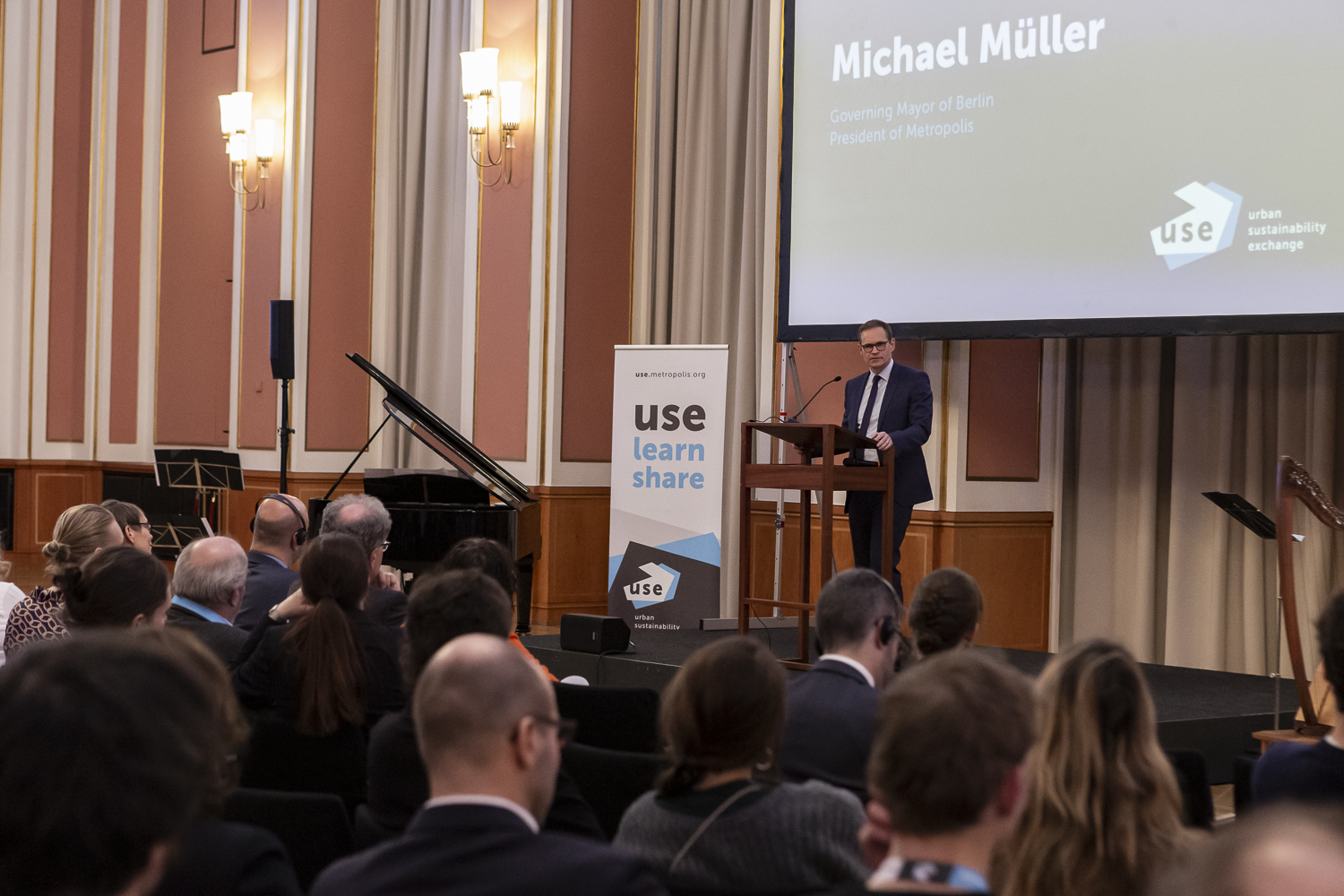Metropolis President and Governing Mayor of Berlin Michael Müller discusses the importance of international city networking, cross-sectoral collaboration and the global exchange of ideas for sustainable citymaking.
Mr Müller, you were elected President of Metropolis last year. Why is it so important for Berlin to be actively involved in international city networks like Metropolis?
Metropolis is a unique network. It gives cities a joint and self-confident voice. It is not often that mayors have the opportunity to communicate directly with each other and to work with continuity on the implementation of common goals. Only Metropolis provides them with this opportunity.
In July last year in New York, for example, I was able to share a platform with mayors from all over the world to articulate before the United Nations our demands for a more equitable housing and land policy. The work of our network is based on the conviction that urban challenges have for a long time not just been of relevance to cities alone.
As the Governing Mayor of Berlin, it is important to me that Berlin, as the German capital, meets its global responsibilities. In the past, our city has experienced suffering and poverty caused by war and later by division. Today, we are in a much better situation and it is time for us to support less privileged cities, to work together with them and to learn from them as well.
Which actors have to work together to make our cities ready for the future?
That depends a lot on the key challenges that cities are confronted with as they plan for the future. It is important not only to recognise that problems are multidimensional in nature but to pay greater attention to this fact when designing solutions to these problems. For example, it is still the case that climate change is not seen often enough as a social phenomenon. In order to find successful approaches to solutions, we have to start thinking in ways that are cross-sectoral. I think it is essential that city-makers from politics, administration, academic research, private industry, charities and many other areas too work together. Not least because it is an aim of our democracy that citizens share in decision-making about the development of their cities.
It is not easy to bring these sometimes very different viewpoints together. But at Metropolis we are working on this too. The use website is available free of charge as an interactive platform for learning and exchange to all “citymakers” worldwide – completely irrespective of their background. As Berlin’s senator for science and research, the project “Sustainable Cities Collaboratory” is also very important to me because this project brings together current research findings in urban development and day-to-day practice. Ten cities from five continents are participating in this project.
Can you explain why the change of name from Policy Transfer Platform to use has occurred?
Away from conferences and specialist seminars, we wanted to create a social format that enabled a global exchange of ideas about sustainable urban development that was as broadly based and unrestricted as possible. In 2014, the predecessor of the use platform – the Policy Transfer Platform (PTP) – went online. Since that time, user numbers have grown, and more and more fascinating case studies on an extremely wide range of topics have been published.
It is now time to make this platform even more professional. And whilst new functions are constantly being developed for the platform, it is also time to give it a name that is more suited to it. This name is use – urban sustainability exchange. And it expresses what happens on the platform: a dynamic exchange of knowledge and experience about sustainable urban development. The name is also an appeal to get involved. I think, too, that the website doesn’t just have better functionality but has greater visual appeal as well.
What specific contribution can use.urban sustainability exchange make with regard to implementing the Sustainable Development Goals (SDGs)?
The Sustainable Development Goals (SDGs) and the New Urban Agenda (NUA) provided cities with an important foundation for sustainable development and established comparable standards. Now, it is a matter of implementing these principles, but in many areas the necessary help and support is not available. use emphasises this practical aspect. The platform offers inspiration and provides direct contact to people who have had particular kinds of experience. Every project that is presented on the platform is linked to the relevant SDGs. I think it is particularly important that the challenges and setbacks experienced over the course of a project are stated openly so that we can all learn from these things.
use.urban sustainability exchange also presents several projects from Berlin.
That’s true, and I am proud of the variety of projects from Berlin presented on the platform. They range from barrier-free urban development to an open-data strategy to the energy-efficient refurbishment of large housing estates. I think this is fantastic and, every time I go on the use website, I am impressed at how many details are provided about each project. For the future, I hope that even more case studies from Berlin and other cities will be published on the platform.
